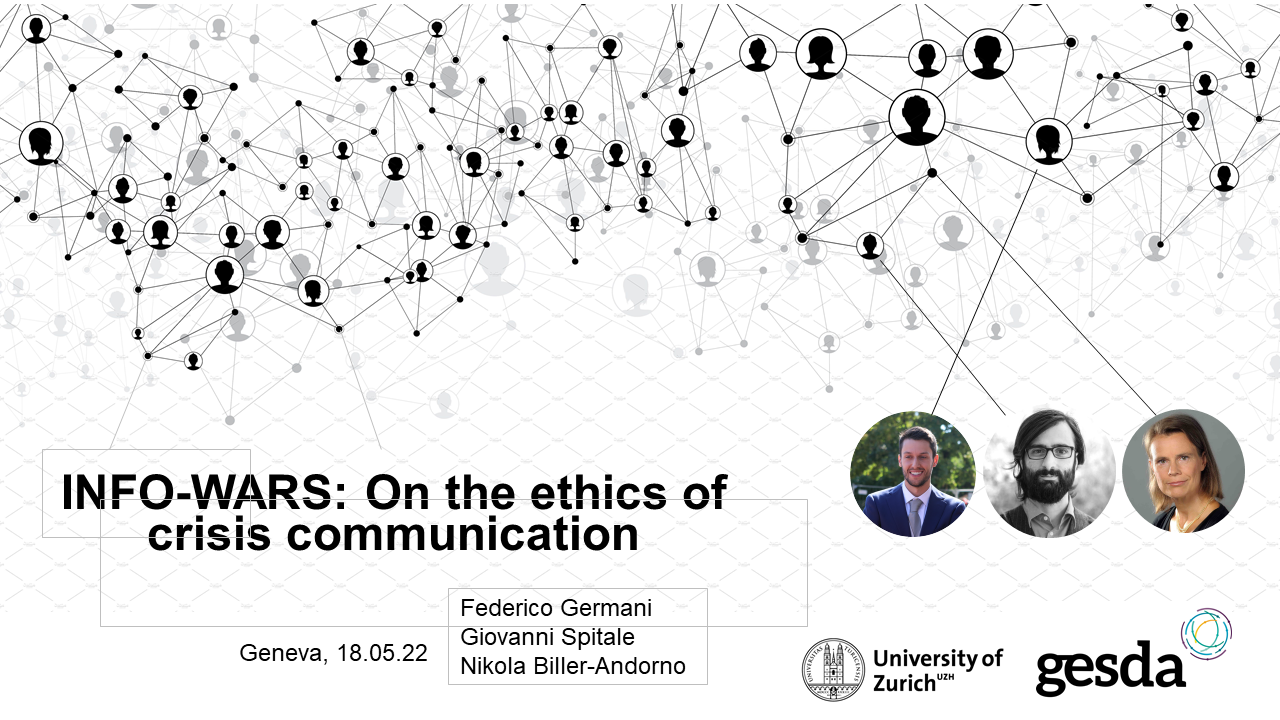This cool deck was presented by Federico Germani, Nikola Biller-Andorno and myself at the Geneva Science and Diplomacy week.

The COVID-19 crisis unveiled an underlying tension in contemporary societies. In order to protect people rapidly and efficiently, governments started to adopt paternalistic strategies. Citizens’ autonomy has been put off the table in two senses: 1. Through concrete limitations of personal freedoms (i.e. protective measures), and more importantly 2. Adopting a rapid decision-making style, focused primarily on efficiency rather than on democratic discourse and inclusion of a plurality of voices.
Is this tension between beneficence and autonomy justifiable? To which degree? What are the moral implications, and the practical outcomes, of not involving citizens in risk and crisis decision making processes? How do the definitions of fairness and participation change, in light of this tension?
Our aim for this session is to dissect this tension and its implication in one specific (and crucial) sector of risk and crisis management, i.e. risk and crisis communication. We will present, define, and discuss the concepts of ‘active’ and ‘passive’ social listening in risk and crisis communication, problematizing the moral implications as well as the practical outcomes, based on recent empirical evidence.

